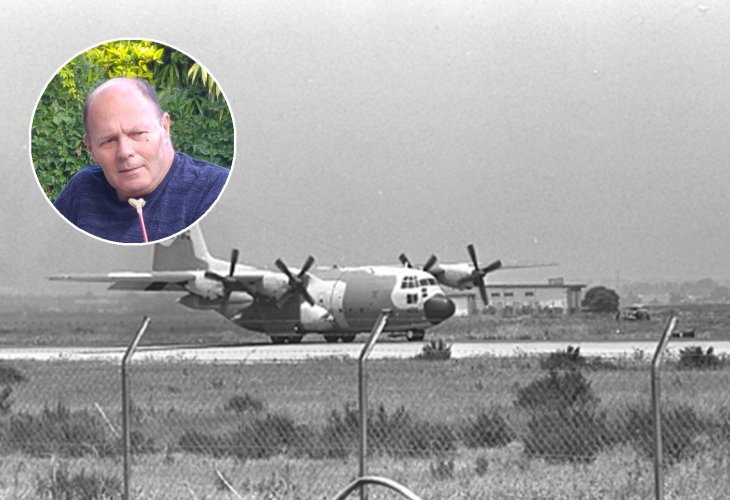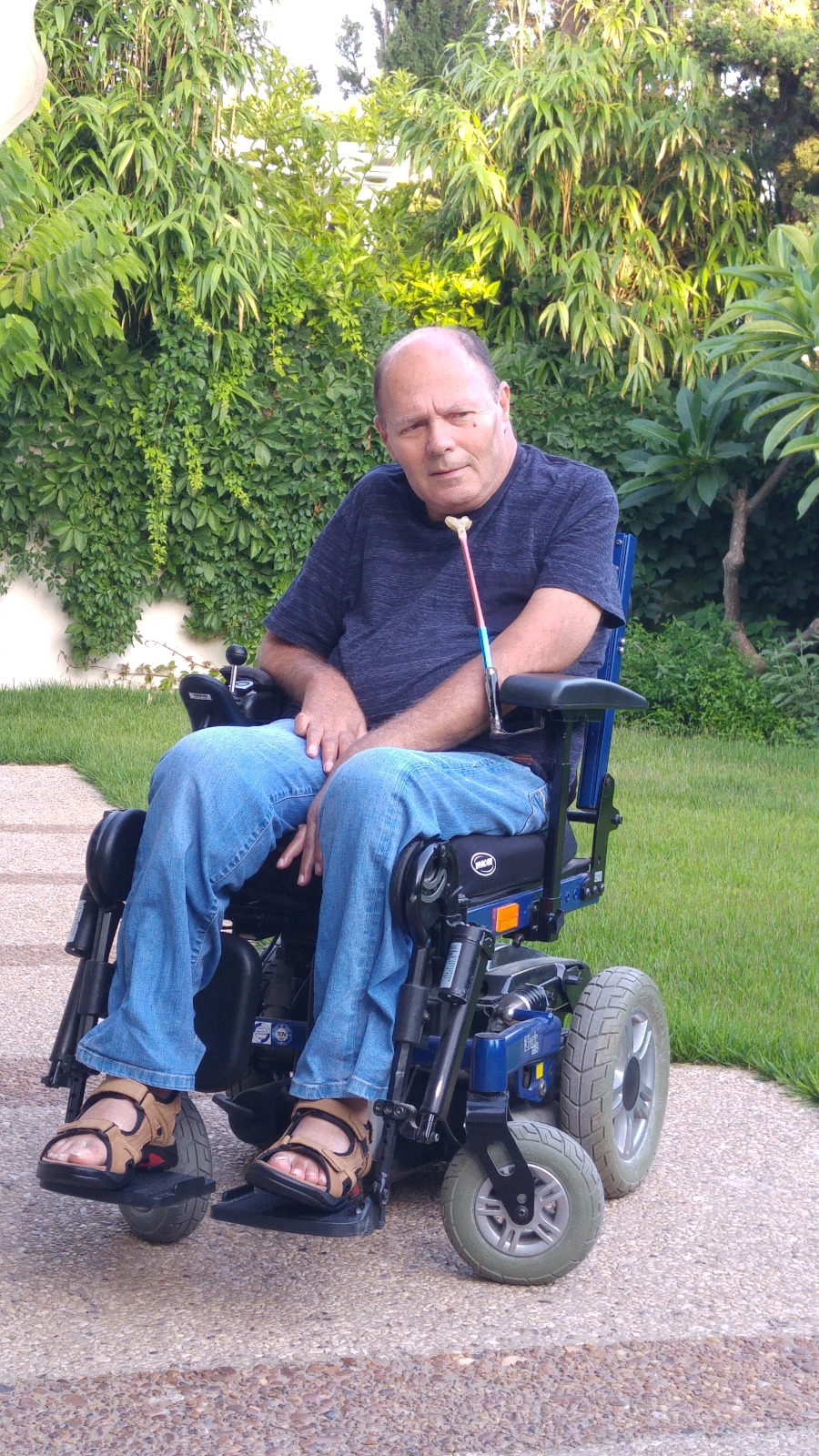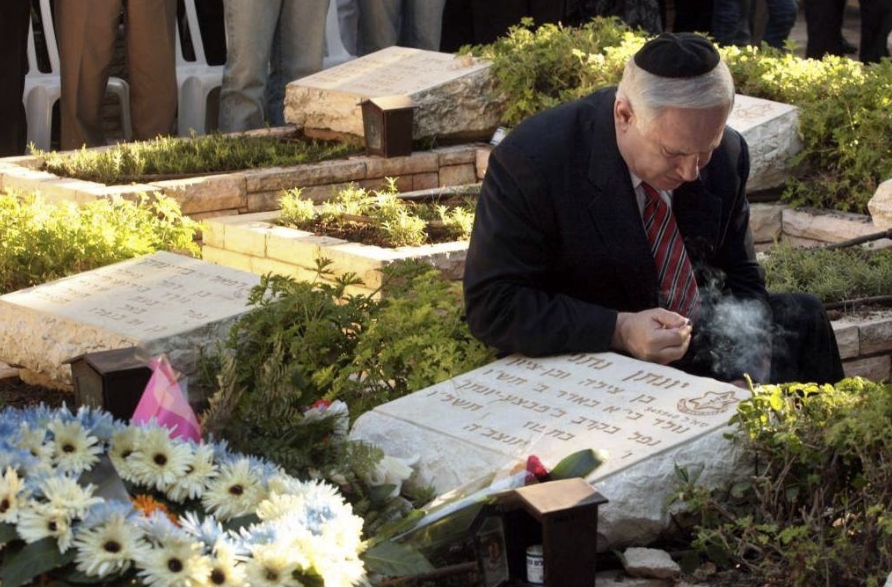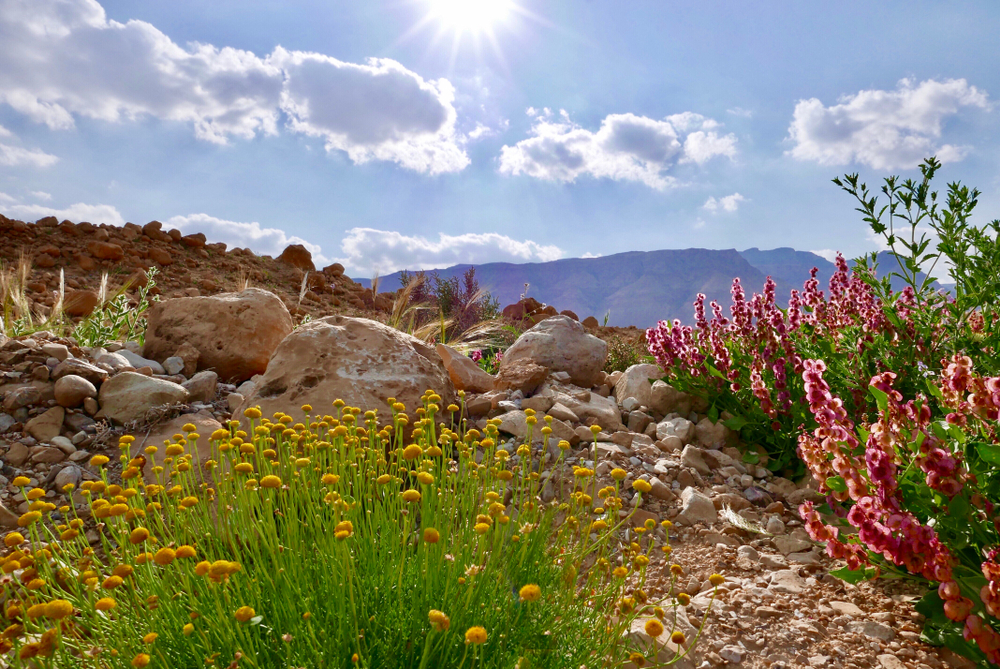The Officer Shot Me: My Journey as the Most Seriously Injured Entebbe Operation Soldier
Sorin Hershko, a soldier injured in the Entebbe Operation, became paralyzed but continues living life to the fullest, taking on unique initiatives. In an inspiring conversation, he shares, "I realized this is the situation, and with it, I must triumph."
 One of the operation's planes lands back in the country (Photo: Moshe Milner, GPO)
One of the operation's planes lands back in the country (Photo: Moshe Milner, GPO)"A passenger plane that departed Ben Gurion Airport on its way to Paris was hijacked," reported this news shock to Israeli citizens on Sunday, June 27, 1976 (29 Sivan 5736). At the time, Sorin Hershko was a young soldier in the paratroopers battalion, serving in the Golan Heights area. Like other Israelis, he followed the news intently, eager to learn about the Israelis taken hostage. He never imagined he'd be directly connected to the operation. Not in his wildest dreams did he foresee being among the soldiers flown to Uganda to rescue hostages. He certainly didn't anticipate becoming the most seriously injured soldier of the Entebbe Operation, which would change his life permanently.
 Sorin Hershko
Sorin Hershko"I Felt the Bullet Hit Me"
Nearly 50 years after the Entebbe Operation, Sorin recounts those days. "Though the hijacking occurred on Sunday, I only began to realize its impact on me by Thursday," he shares. "This was after our commander approached us to immediately organize a team of soldiers. Though he didn’t specify the purpose, we guessed it was related to the plane incident. Our wildest guesses involved a retaliatory operation, nothing beyond that."
The realization that it was a rescue operation hit them only the next morning when they arrived at the gathering place and met the Chief of Staff and senior officers. Together, they listened to briefings and began preparations. "On motzei Shabbat, we took off in four Hercules planes to Entebbe," Sorin recalls. "Three planes were loaded well above the standard capacity, carrying 100 soldiers each, along with combat equipment and medical supplies. The most famous vehicle among them was a Mercedes intended to simulate Idi Amin's visit to the airport, accompanied by two command jeeps."
Did you operate with Yoni Netanyahu?
"No, there were several forces in this operation, including the paratroopers, Golani reconnaissance, and Sayeret Matkal led by Yoni Netanyahu. I was with the paratroopers, so there wasn't any direct connection between us. However, I knew him beforehand, since he was an armor battalion commander, and we occasionally worked together in various exercises."
 Benjamin Netanyahu at the grave of his brother Yoni Netanyahu
Benjamin Netanyahu at the grave of his brother Yoni NetanyahuAnd what was your role in the Entebbe Operation?
"There were essentially two terminals at Entebbe airport: the old terminal, where the terrorists and hostages were held, and the new terminal about a kilometer away. I was positioned near the new terminal. The operation was swift, succeeded quietly, and exceeded expectations. As we concluded the rescue actions, I ascended to the terminal building’s roof to ensure the area was clear. A local officer, hidden in a room, heard my steps, ambushed me at a corner, and shot at me."
Sorin recalls the moment he was shot, feeling the bullet penetrate his body. He didn’t lose consciousness, so he remembers being evacuated by Israeli forces to the plane and his experience during the flight home. "Honestly, I felt little pain," he says, "but I realized my injury was severe due to the massive blood surround me. I felt strange waves of heat and cold. The field medical treatment, including an IV and bandages, was excellent, but of course, upon arrival, I was rushed to the hospital."
Only at the hospital did Sorin understand the gravity of his injury and why he hadn’t felt much pain. "It turned out to be a severe spinal injury, causing paralysis from the neck down," he describes. "Initially, there was hope that rehabilitation and medical treatment might restore some function, but as weeks and months passed without improvement, I gradually understood this was the reality, and with it, I must triumph."
Seeing the Advantages
"It’s essential to ‘triumph,’ but it's not simple," Sorin notes that dealing with the aftermath wasn't easy. "Life never returned to what it was before the injury; they changed 180 degrees," he explains.
One of the first things he did upon realizing the seriousness of his situation was to meet others in similar conditions. "I'd converse with them, sincerely interested in how they live and cope with their limitations. Through these conversations, I learned that one can still enjoy life, albeit differently."
And how exactly do you do that?
"Let me share about myself - I always have someone with me, 24/7, assisting with various activities. But there are tasks I do independently, using a small stick I hold in my mouth to type and control my wheelchair. I can make phone calls and answer them, and overall, whenever I have special requests, there’s always someone to assist."
What gives you the strength to live after such an injury and avoid sinking into depression?
"I maintain social connections, retaining friendships from my youth and having a profound bond with my extended family. These are crucial elements in my eyes. Continuing a normal social life significantly helps me feel aligned.
"The truth is, I don't think extraordinary strength is required to keep living because life itself is a powerful force leading an individual forward. From personal experience and witnessing others in similar crises, when faced with a significant setback or tragedy, one naturally seeks ways to continue life. It may be a vastly different style than planned, but soon enough, you’ll discover this new lifestyle has advantages too. Adapting to the new life situation, recognizing its benefits, and accepting the consequences is essential. In my view, one of the most important factors in these situations is maintaining a human connection; I'm truly grateful for that."
Do you often accompany others facing similar challenges?
"When I was younger, I did quite a lot. But I'm not alone; there are many others like me. If someone wished to meet similar individuals, there are others to approach. Nowadays, I rarely meet, as generational gaps might influence; a 19-year-old who becomes disabled often prefers meeting peers experiencing similar issues, feeling it easier to connect."
What's said in such cases? What genuinely supports a young person whose life dramatically changed?
"I believe excessive conversation isn’t necessary. The most crucial action is showing them life goes on. Although different from our plans and styles, life continues with possible positive aspects."
Revolutionizing the Field
One of Sorin's perceived positive outcomes of his disability is the establishment of the 'Lotem - Accessible Nature for All' organization. "I didn’t establish the organization," he clarifies. "A young guide noticed that whenever he led classes with disabled or limited students, those children had to remain on the bus with the driver as others explored. This deeply disturbed him, especially with large youth movement groups, often including numerous children with disabilities or special education classes, preventing hundreds from experiencing nature. He believed excluding such large groups was unacceptable; as a guide, he was passionate about introducing them to nature – the plants, flowers, and paths.
"His idea was born to guide these kids into nature with adjusted tours and special enrichment lessons on their level and abilities. The focus was on experiencing nature firsthand, not theoretically."
Sorin states that after decades, the organization has become a giant enterprise guiding tens of thousands annually through adapted trails with a team of numerous professionals. "Our guides undergo proper training to customize tours to fit every child and group," he explains, "each route and subject is personally tailored."
 (Photo: shutterstock)
(Photo: shutterstock)What about adults with disabilities?
"Our activities suit all ages, and we strive to help them too. Personally, though no longer young, I bought a second-hand Border Police Jeep to occasionally leave the road and explore interesting places. I deeply love nature and often join trips.
"I believe the beauty of nature and creation should be felt by everyone because it makes you more wholesome and complete. There’s no reason children or adults shouldn't experience such moments, and it's our responsibility to ensure it. Though we began this initiative, I'm delighted awareness now exists, leading to significant industry changes. Many institutions and governmental sectors recognize the importance of this population's need for identical leisure experiences to any ordinary child, and I am pleased about that."

